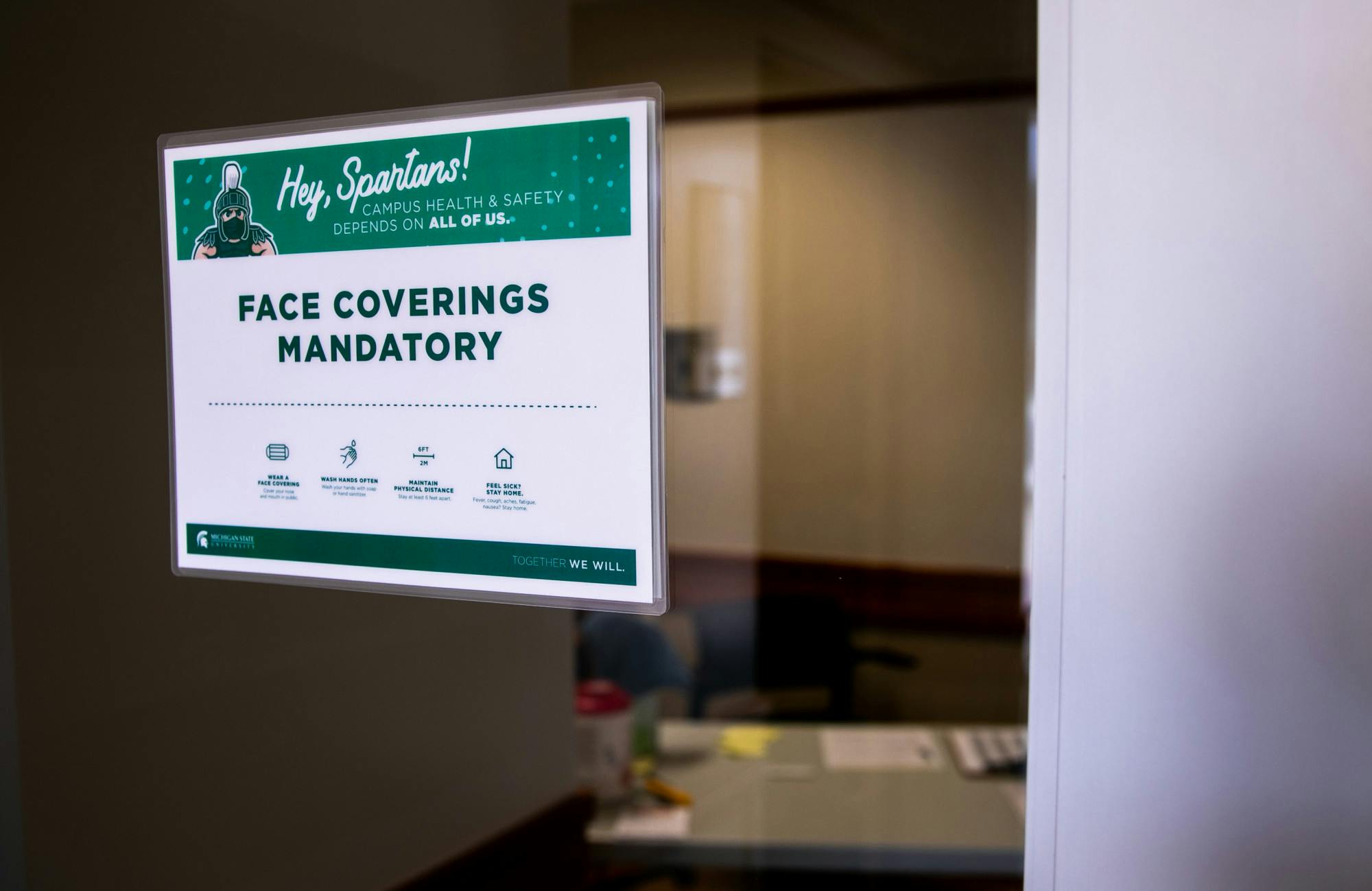University student health facilities across the country have been forced to quickly adapt to fluctuating guidelines and protocols amid the COVID-19 pandemic, and Michigan State’s Olin student health center is one of them.
Prior to MSU’s transition to a completely remote fall schedule, Olin prepared for the return of thousands of students to campus. Although there will be significantly less students on campus with MSU’s recent announcement, the previously established protocols Olin put in place remain essentially the same.
As usual, appointments will be required for all visits to Olin. When scheduling an appointment, screening for COVID-19 symptoms will be done over the phone and done in person when arriving at the facility. Based on this screening process, symptomatic patients will be directed to a certified "sick" clinic, while more routine visits will de directed to a "non-sick" clinic.
With less people on campus, the fear of an overwhelming demand is not as somber, which was something MSU Director of Health Services Keith Nelson expressed worry for prior to the transition.
“We’ve never seen anything quite like this, so we don’t really have the staffing to do unlimited patient visits, and we are hoping that it doesn’t become like that,” Nelson said. “We do have limits. We only have certain staff, and they can’t work 24/7, so we have it built to fluctuate with the need as best we can.”
Testing will be available at Olin, however, on a limited basis. Nelson said that the university hopes it would be possible to distribute over-the-counter, self-performed tests in the future, but that isn’t something they have right now.
“It is a complex situation, and there is no simple answer to this (testing),” Nelson said. “There is a test that we are trying to validate for symptomatic students that need testing that can be run on a limited basis here at Olin, (but) that requires, given certain results, a backup test to be sent out. ... So, there is limited testing at Olin based on ... symptoms and indications.”
Testing at Olin would be available to ill students only, while non-ill students will have separate options such as attending an on-campus nasal swab collection site.
Other schools, like the University of North Carolina, or UNC, which shut down just one week after students returned to campus, established similar changes to their processes prior to welcoming students back to campus.
Similar to MSU, UNC created separate facilities for students with COVID-19 symptoms, call-in screening prior to students' appointments and mandatory screening for individuals who enter the building.
"These changes enabled us to be ready to care for students and to create a safe and efficient environment for providing that care,” UNC media relations said on behalf of Campus Health Executive Director Ken Pittman.“I believe the new procedures and processes put in place, combined with the proactive steps taken by Campus Health, thoroughly prepared us to deal with the changing needs of our students in the face of a pandemic.”
However, within one week of opening, the COVID-19 positivity rate at UNC rose from 2.8% to 13.6% at Campus Health. UNC tested 954 students, placing 177 of those in isolation and 349 in quarantine, according to a release from the university. Mild symptoms were experienced by most students.
When students were expected to return to campus at MSU, Nelson was worried if students would strictly follow safety guidelines. Even though there will be fewer students, the message remains the same.
“A real concern is the level of commitment that all people will have, students or faculty or staff, of committing to wearing masks and keeping their hands clean,” Nelson said. “If we all do that we really feel confident that it will work really well, and it’s not a law per say. It’s not enforceable as a law, so we are counting on everyone to abide by those recommendations and if they do, it should work really well. ... It’s not comfortable, but it seems to be the best we have, and it seems to work really well if people are willing to do it.”
Support student media!
Please consider donating to The State News and help fund the future of journalism.
Discussion
Share and discuss “Olin student health protocol changes amid COVID-19 pandemic, limited testing available” on social media.








